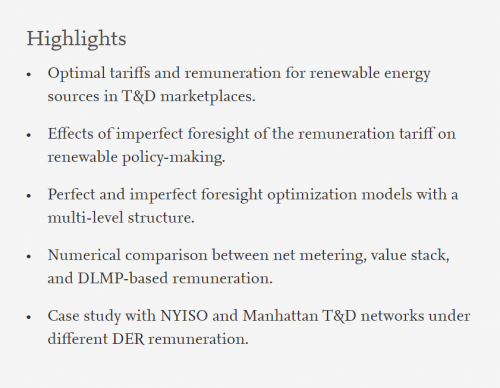This paper proposes a decision-making framework to optimize electricity tariffs and remuneration policy for renewable energy sources operating in transmission- and distribution-level (T&D) marketplaces. The authors develop perfect and imperfect foresight models with a multi-level structure to investigate the effects of the inability of actors to correctly predict future remuneration on the efficiency of the decisions made by policymakers. The important advantage of the proposed models is that while they are capturing conflicting interests and different information availability of stakeholders involved, they also account for techno-economic constraints on operations of generation, transmission and distribution assets.
The presented models can accommodate net metering, value stack, and distribution locational marginal price (DLMP)-based remuneration policies, which allows for their numerical comparison in terms of the effect on the optimal roll-out of distributed energy resources (DERs). The case study carried out for the NYISO and Manhattan T&D networks reveals that inaccurate foresight on the DER remuneration diminishes the social welfare under all DER remuneration policies, with the maximum loss of 1.6% across all considered scenarios.

